Jeremiah: Chapter-by-Chapter Commentary

*CONTENTS*
00:00:00 - Chapter 1: Jeremiah's Call
00:17:33 - Chapter 2: Israel's Unfaithfulness
00:34:43 - Chapter 3: Return, Faithless Israel
00:49:00 - Chapter 4: Judah's Coming Destruction
01:03:24 - Chapter 5: Jerusalem's Stubborn Impenitence
01:12:54 - Chapter 6: Disaster Approaches
01:22:50 - Chapter 7: Jeremiah's Temple Sermon
01:32:00 - Chapter 8: Jeremiah's Grief for the People
01:41:00 - Chapter 9: Lamenting for the Land
01:52:54 - Chapter 10: The Vanity of the Idols of the Nations
02:03:17 - Chapter 11: A Broken Covenant
02:13:04 - Chapter 12: Jeremiah's Complaint
02:24:21 - Chapter 13: The Ruined Loincloth
02:35:36 - Chapter 14: Famine, Sword, and Pestilence
02:43:50 - Chapter 15: Who Will Have Pity on You, O Jerusalem?
02:54:04 - Chapter 16: Restoration Promised
03:02:38 - Chapter 17: Judah's Sin
03:12:21 - Chapter 18: Potter and Clay
03:20:41 - Chapter 19: The Broken Vessel
03:29:43 - Chapter 20: Pashhur Mistreats Jeremiah
03:37:31 - Chapter 21: Nebuchadnezzar's Destruction of Jerusalem Foretold
03:44:08 - Chapter 22: Message for the Sons of Josiah
03:55:40 - Chapter 23: The Righteous Branch
04:09:25 - Chapter 24: Good and Bad Figs
04:17:32 - Chapter 25: Seventy Years of Bondage
04:27:35 - Chapter 26: Jeremiah Delivered From Death
04:37:13 - Chapter 27: Nebuchadnezzar's Yoke
04:44:37 - Chapter 28: Hananiah
04:53:02 - Chapter 29: Jeremiah Writes to the Exiles
05:03:33 - Chapter 30: Restoration Promised
05:14:43 - Chapter 31: The New Covenant
05:35:36 - Chapter 32: Jeremiah Buys a Field
05:50:38 - Chapter 33: The Lord's Covenant With David
06:00:08 - Chapter 34: Zedekiah's Fate
06:07:43 - Chapter 35: The Rechabites
06:15:46 - Chapter 36: Jehoiakim Burns the Scroll
06:24:34 - Chapter 37: Jeremiah Imprisoned
06:31:32 - Chapter 38: Jeremiah Rescued from the Cistern
06:39:50 - Chapter 39: The Fall of Jerusalem
06:51:23 - Chapter 40: The Remnant in Jerusalem
06:59:34 - Chapter 41: The Assassination of Gedaliah
07:07:18 - Chapter 42: Warning Against Going to Egypt
07:15:29 - Chapter 43: Jeremiah Taken to Egypt
07:23:53 - Chapter 44: Condemnation of Idolatry
07:33:43 - Chapter 45: The Lord's Message to Baruch
07:41:59 - Chapter 46: Judgment on Egypt
07:56:18 - Chapter 47: Judgment on Philistia
08:02:42 - Chapter 48: Judgment on Moab
08:15:24 - Chapter 49: Judgment on Ammon, Edom, Damascus, Kedar, Hazor, and Elam
08:28:45 - Chapter 50: Judgment on Babylon
08:46:13 - Chapter 51: Babylon's Destruction Foretold
09:02:33 - Chapter 52: Jerusalem's Fall
If you have enjoyed my videos and podcasts, please tell your friends. If you are interested in supporting my videos and podcasts and my research more generally, please consider supporting my work on Patreon (https://www.patreon.com/zugzwanged), using my PayPal account (https://bit.ly/2RLaUcB), or by buying books for my research on Amazon (https://www.amazon.co.uk/hz/wishlist/ls/36WVSWCK4X33O?ref_=wl_share).
The audio of all of my videos is available on my Soundcloud account: https://soundcloud.com/alastairadversaria. You can also listen to the audio of these episodes on iTunes: https://itunes.apple.com/gb/podcast/alastairs-adversaria/id1416351035?mt=2.
More From Alastair Roberts
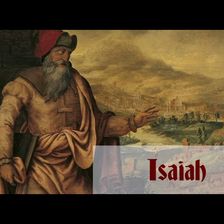
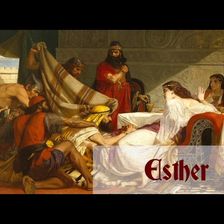
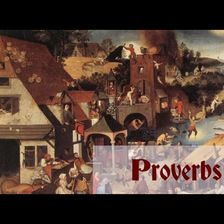
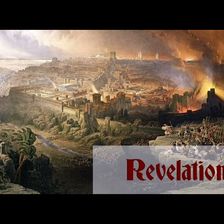
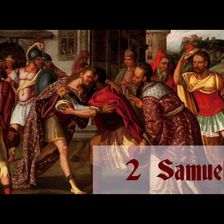
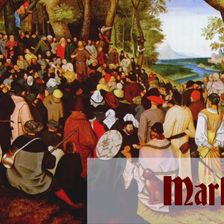
More on OpenTheo















